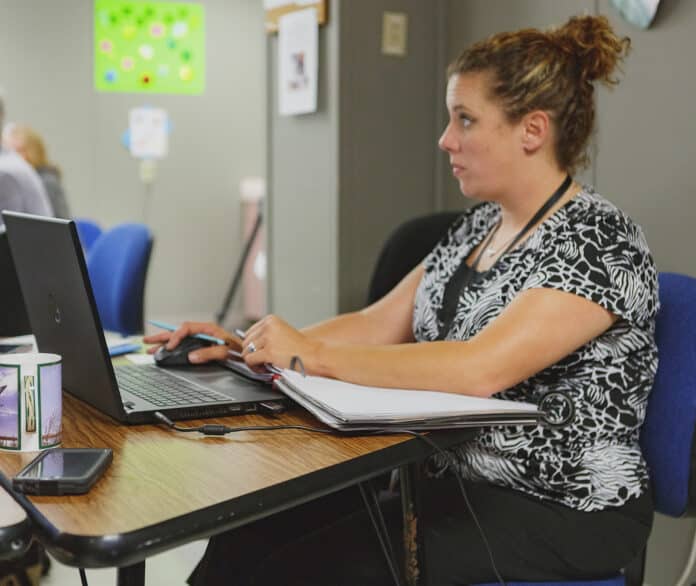The need for substance abuse, behavioral disorder and mental health counselors is expected to grow over the next decade.
The U.S. Bureau of Labor Statistics predicts a 26 percent increase in the number of counselors needed in Texas by 2028, and Texas State Technical College is helping to train counselors to fill that need through its online Chemical Dependency Counseling program.
Many of the students in the program learn more about themselves, according to Chemical Dependency Counseling instructor Patty Bundick.
“Some of our students are hungry to know more about themselves,” she said. “The one thing I always think about, even if the student does not go to work in the field, is that the program has made a difference in their life.”
Abilene’s Ashli Arispe wants to help people with a second chance in life.
“I think everyone deserves a second chance,” she said. “My nature has always been to help people. I volunteered in high school and have always liked helping others.”
Arispe, a 2020 TSTC graduate, works for ABODE Treatment in Abilene. She said the facility’s acronym, short for Adult Basic Opportunity Development and Environment, depicts how the treatment center works to help people.
“I want to help more people, and help them plant their seeds and watch them sprout,” she said.
The five-semester Associate of Applied Science degree program at TSTC covers several topics, including working with families and family intervention. Students will discuss current issues ranging from child protective services to HIV and other diseases. The program is offered completely offline.
Joseph Ott, a 2015 graduate of the program, said he always enjoyed helping people and that was the main reason he chose the field. Ott is a counselor at Corpus Christi’s South Texas Substance Abuse Recovery Services.
“I knew that being 22 years sober that I would try to help people. It is not about the money for me,” he said.
The median annual salary for a counselor, according to the U.S. Bureau of Labor Statistics, was $46,240 in 2019.
Graduates of TSTC’s program have found employment at different facilities around the state, including Abilene Regional Council on Alcohol and Drug Abuse, Homeward Bound, Serenity House, the Taylor County Substance Abuse Treatment Facility and the Texas Juvenile Justice Department.
For more information, visit tstc.edu.





